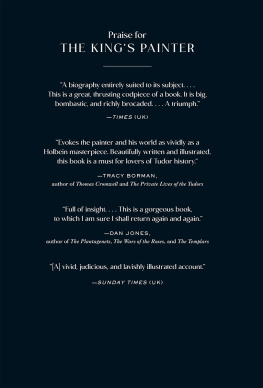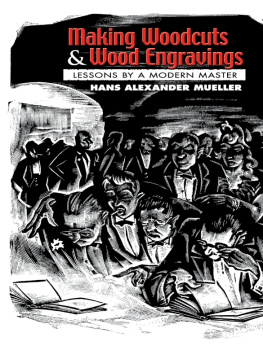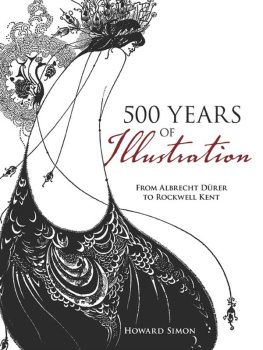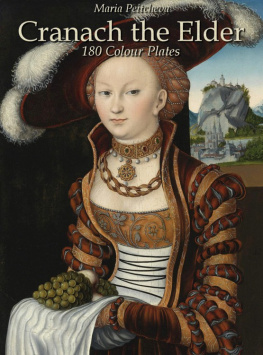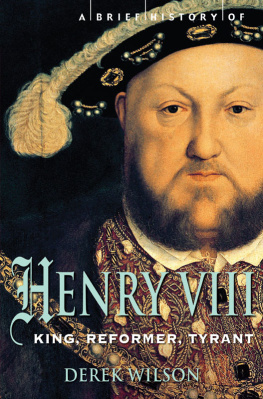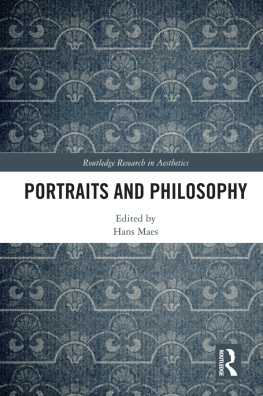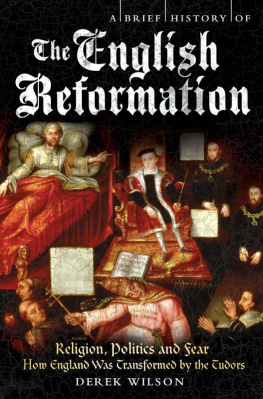HANS HOLBEIN
PORTRAIT OF AN UNKNOWN MAN
DEREK WILSON
Revised Edition
This ebook is copyright material and must not be copied, reproduced, transferred, distributed, leased, licensed or publicly performed or used in any way except as specifically permitted in writing by the publishers, as allowed under the terms and conditions under which it was purchased or as strictly permitted by applicable copyright law. Any unauthorised distribution or use of this text may be a direct infringement of the authors and publishers rights and those responsible may be liable in law accordingly.
Version 1.0
Epub ISBN 9781448103768
www.randomhouse.co.uk
Published by Pimlico 2006
2 4 6 8 10 9 7 5 3 1
Copyright Derek Wilson 1996 and 2006
Derek Wilson has asserted his right under the Copyright, Designs and Patents Act 1988 to be identified as the author of this work
This book is sold subject to the condition that it shall not, by way of trade or otherwise, be lent, resold, hired out, or otherwise circulated without the publishers prior consent in any form of binding or cover other than that in which it is published and without a similar condition including this condition being imposed on the subsequent purchaser
First published in Great Britain in 1996 by
Weidenfeld & Nicolson
Revised Pimlico edition 2006
Pimlico
Random House, 20 Vauxhall Bridge Road,
London SW1V 2SA
Random House UK Limited Reg. No. 954009
www.randomhouse.co.uk
A CIP catalogue record for this book is available from the British Library
ISBN 9781844139187 (from Jan 2007)
ISBN 1844139182
CONTENTS
About the Book
One of the greatest artists of the Renaissance, Hans Holbein the Younger was also a complex and fascinating man who knew Erasmus, Thomas More, Henry VIII and many of the sixteenth centurys wielders of power and influence. He developed his own distinctive attitudes towards religion, politics and social life as he moved among stalwart burghers, merchant adventurers and the bejewelled denizens of a glittering court. The range of Holbeins talent went far beyond painting likenesses he was constantly in demand for trompe-loeil murals and intricate jewellry designs, he revolutionised book illustrations and he produced Catholic alterpieces and Protestant propaganda engravings, woodcuts and drawings depicting the stories and the Bible.
In this fascinating biography, acclaimed historian Derek Wilson gives a fresh account of Holbeins motives and paintings to provide a controversial reinterpretation which presents the artist as a man inextricably bound up in the stirring of a creative and turbulent age.
About the Author
Derek Wilson is well known through his books, radio and TV appearances, frequent journalistic features and festival appearances as one of the UKs leading narrative historians. Among his critically acclaimed and best-selling books are Sweet Robin: Robert Dudley, Earl of Leicester; Rothschild: A Story of Wealth and Power; The King and the Gentleman: Charles Stuart and Oliver Cromwell, 15991649 (Pimlico 2000); In the Lions Court: Power, Ambition and Sudden Death in the Reign of Henry VIII (Pimlico 2002); All the Kings Women: Love, Sex and Politics in the Life of Charles II (Pimlico 2004) and Charlemagne: Barbarian & Emperor (Pimlico 2006).

The Pope
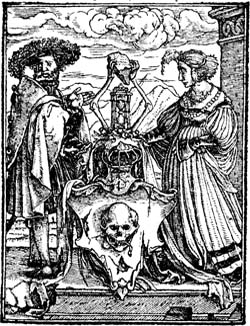
The Escutcheon of Death
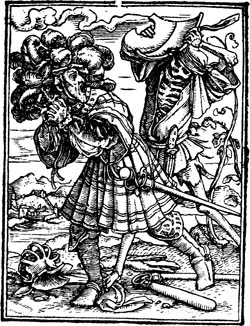
The Count
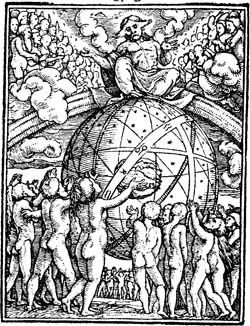
The Last Judgement
LIST OF ILLUSTRATIONS
FRONTISPIECE
DRAWINGS IN THE TEXT
PLATE SECTIONS
THE FOLLOWING ILLUSTRATIONS WERE SUPPLIED BY THE BRIDGEMAN ART LIBRARY:
Portraits of Two Youths, a Dwarf and a Townscape; De Vos van Steenwijk; Ship of Fools; Madonna of the Burgermeister Meyer; The Dead Christ, Andrea Mantegna; The Deposition, Matthias Grnewald; Erasmus; Georg Gisze; Bonifacius Amerbach; Nicholas Kratzer; Thomas More; Richard Southwell; The Ambassadors; Anne of Cleves; Christina of Denmark; Henry VIII; Portrait of Edward VI as a child.
PREFACE TO THE REVISED EDITION
I am very grateful to Will Sulkin of Pimlico for encouraging me to make this revised edition. Over the last decade my own thinking, particularly about Holbeins religious affiliation, has moved on, helped not a little by a spate of specialist studies on the artists work: Susan Foisters Ph.D. thesis, Holbein and his English Patrons (Courtauld Institute, University of London, 1989) is seminal. In 1997 the recently restored The Ambassadors went on display and the catalogue accompanying the exhibition by Susan Foister, Ashok Roy and Martin Wyld brought students up to date with the very latest thinking about this enigmatic painting. One of the abiding riddles of Holbeins portraiture the identity of the sitter for Lady With a Squirrel and a Starling was solved by David J. King in Apollo, May 2004, and the identification of Anne Lovell adds to our knowledge of the circle of Holbeins early English patrons. Ann Johnson very kindly gave me access to her paper, From an analysis of Holbeins paintings can we discern where his religious sympathies lay? Among other important recent publications are: Oskar Btschmann and Pascal Griener, Hans Holbein, 1997 and Mark Roskill and John Oliver Hand, Hans Holbein: Paintings, Prints and Reception, New Haven, 2001. It has not been possible in this modest revision to reflect upon all the new insights provided by recent research but I hope what I have written below will encourage readers to further investigation of this remarkable man and his equally remarkable age.
INTRODUCTION
If any justification were needed for a new biography of one of the worlds most accessible artists, whose paintings and drawings have always delighted, intrigued and informed, the 500th anniversary of his birth would provide it. In reality, the fascination of the Holbein story is its own vindication. His remarkable and varied talent has been recognized ever since Erasmus, Thomas More and Henry VIII sat for him. The royal tutor, John Cheke, reverently collected all the artists drawings and sketches he could find, and the Swiss lawyer, Bonifacius Amerbach, eagerly bought up every available example of Holbeins work. Nicholas Hilliard described him as the most excellent Painter and limner the greatest Master Truly in both those arts after the life that ever was. Holbein was a coolly precise portraitist, capable of delineating nuances of personality with a flick of brush or pencil. His works in miniature were miracles of clarity. Yet he was also a master of the grandiose, who splashed gorgeously clad figures and prancing animals over large wall spaces.
Hans Holbein the Younger was the first European artist to provide later generations with a visual record of many of the most influential men and women of his day, and particularly the denizens of Henry VIIIs court. When we call to mind the Tudor despot, or Anne of Cleves, the Flanders Mare, or the persecutor-turned-martyr Thomas More, or the scheming Duke of Norfolk or Thomas Cromwell, mastermind of the English Reformation, or scores of other politicians, churchmen and courtiers who were close to the centre of power in the 1530s, it is through Holbeins eyes that we see them. But he introduces us to many other men and women of contemporary importance and greater or lesser historical significance German merchants, Swiss burghers, scholars, printers, diplomats, lawyers, doctors, princes and princesses.


